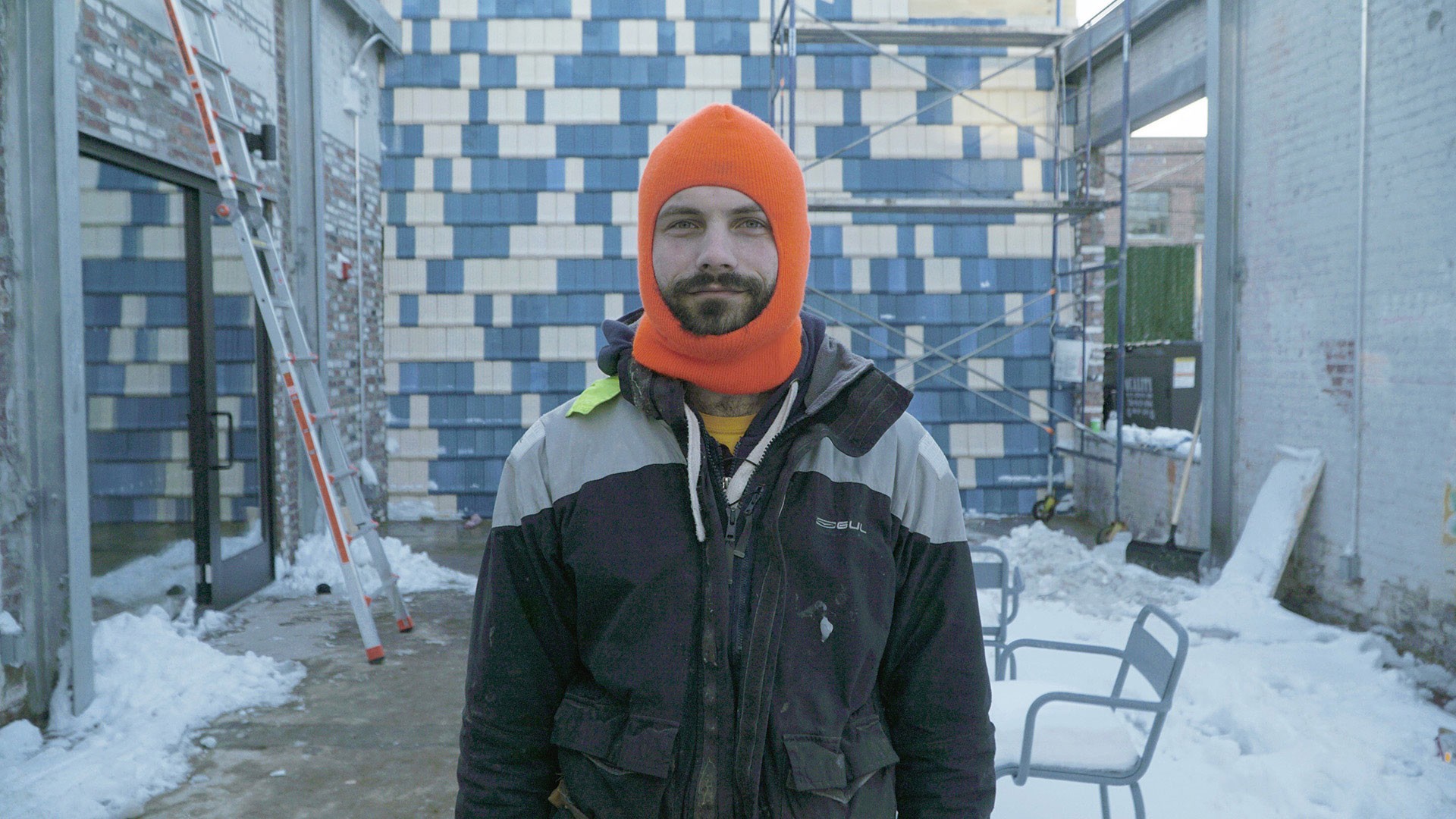In late August, more than a dozen of the world's leading environmental activists convened at Lake Tahoe for the inaugural Creating Equilibrium summit. The theme of its two-day 'Visions' conference was biodiversity, but the unofficial theme running alongside it was definitely intersectionality.About 150 attendees had the chance to listen to a forum of experts who, outside this conference, were usually siloed in their respective fields. The speaker roster was stuffed with world-class biologists, Silicon Valley futurists, artists who use their platform for activism, athletes who use their platform for activism, authors, professors, entrepreneurs, and just generally the kind of people who want to see us all get to that Star Trek future.
Advertisement
That there's value in plopping down the CEO of Farm2U (Khuram Mir) next to an IBM Master Inventor and WW Business Leader in the IBM Watson Group (Neil Sahotas) to discuss applications of ecology and cleantech with the guy who in fact coined the term 'cleantech' (former environmental policy advisor John Balbach) seems obvious when the situation's already laid out in front of you.But it's not especially common to get this many experts in this many subjects in the same room, discussing the same problem from an interdisciplinary standpoint. The artists and athletes formed a joint panel to talk about how they channeled their respective social capitals toward environmentalism. Multiple people said the conference felt like a series of mini TED Talks, which checks out since lots of the speakers have given those, too.
"A lot of what we're trying to do here is make this stuff fun," said New York Times best-selling author Steven Kotler, who's also one of Creating Equilibrium's co-founders. "When I hear other people talking about this -- smart people -- it's as if they think smart people run around showing off, right? Like, no, it actually is fun … one of the reasons the environmental movement is so polarizing is because for 50 years it's been a bunch of people saying 'No, no, no, you can't do this, you can't do this.' That's ridiculous.""The environmental movement is so polarizing is because for 50 years it's been a bunch of people saying 'No, no, no, you can't do this, you can't do this.' That's ridiculous."
Advertisement
Conference organizers made it a point to invite high-schoolers, who probably appreciated the live music and the choice of 28-year-old activist and YouTube star Prince Ea to host. The academia-based speakers are much older.
Check out more videos from VICE:
Geneticist and TV host David Suzuki, 81, confronted the audience with the possibility that if we don't take the necessary action against climate change, 90 percent of humanity could be wiped out by end of the century (a theory proposed by James Lovelock, the climate scientist best known for his controversial Gaia hypothesis proposing that our planet has a self-regulating system the way living organisms do; likelihood of the 90-percent thing probably changes depending on who you talk to).There are a couple of very tangible reasons why Creating Equilibrium is looking at millennials, who as a demographic frankly just care more about environmental issues than Boomers do."It's already a generation that's hardwired for this stuff," Kotler said. "For a lot of what we're trying to do here, bridge the gap between environmentalists and technologists."
Check out more videos from VICE:

Geneticist and TV host David Suzuki, 81, confronted the audience with the possibility that if we don't take the necessary action against climate change, 90 percent of humanity could be wiped out by end of the century (a theory proposed by James Lovelock, the climate scientist best known for his controversial Gaia hypothesis proposing that our planet has a self-regulating system the way living organisms do; likelihood of the 90-percent thing probably changes depending on who you talk to).There are a couple of very tangible reasons why Creating Equilibrium is looking at millennials, who as a demographic frankly just care more about environmental issues than Boomers do."It's already a generation that's hardwired for this stuff," Kotler said. "For a lot of what we're trying to do here, bridge the gap between environmentalists and technologists."
The festival stage. (Photo via Creating Equilibrium)
The people behind Creating Equilibrium know that climate change and biodiversity, like pretty much every other historically unsexy subject of discussion, can be socially rebranded by influential people. The musicians and photographers and pro athletes and social media celebrities are here to advance their activism, but they also shift the aesthetic of what could have been a much more technical conference. They help teenagers see climate change or microbiology as relatable when they might otherwise see them as dry. They make the stuff fun.
Advertisement
In the same vein, the concert featuring some of the more eco-conscious members of groups like Dave Matthews Band, Pearl Jam, FUN., and Dispatch is going to get more traction with the younger set than another three hours of speakers would have; probably even with the older set. And with enough of them on board, that collective Midas touch young people form to steer things toward normalization could, in theory, save the world, if we could aim it at all the right things.
There are all kinds of examples we could choose from here, so in the spirit of keeping stuff fun let's go with cows.About a third of the world's land surface is used for livestock; globally, agriculture is the single largest contributor of greenhouse gases -- way more than the transportation sector or deforestation. This means there's an enormous need to regulate livestock methane emissions, which is UN-speak for cow farts. More than half our livestock emissions in the United States come from beef cattle, which is what you have to call them because they're not even the only kind of cattle involved here. So what if, instead of relying on such an exhaustive, wasteful, cancerous process, we grew our meat in a lab?"For a lot of what we're trying to do here, bridge the gap between environmentalists and technologists."
Syd Mead vibes. (Photo via Creating Equilibrium)
Synthetic beef -- in vitro chuck grown from stem cells -- is the first step in what an optimist could see becoming a cascade of restorative effects. Fewer cows means lower methane output; but it also frees up massive tracts of land that could sustain the population through vertical farming; which, being vertical, would still leave enough space to reintroduce keystone predators (top-of-the-food-chain types, wolves and so forth); which balance and gradually replenish the surrounding ecosystem; you get the idea.
Advertisement
The reason we haven't done this yet is not that we can't create synthetic meat (we can) or even that we can't scale it up (still working on that one). In vitro beef has a deep bench of advantages, and all of them are rendered meaningless by its one unavoidable shortcoming, which is that people think it's icky.This brings us back to millennials, a demographic already more open to -- even enthusiastic about -- food that is new or weird. So if the sales pitch is coming from the athletes they admire or the bands they like, they as a generation could set off the process of normalizing it. Everyone else would organically follow."I spend a lot of time thinking about how subculture moves, how it progresses," Kotler said. "What happened is the subculture's totally visible at this point, and so it's sort of starting to go away. What are you going to do, right? Widen our sphere of influence into, what, past humans? Into plants and animals? That's fairly radical and fairly rebellious, if we want it to be, so honestly I think tech and biodiversity can be the core of the next rebellion."
Taken in that context, the conference's real purpose is to mark the beginning of a movement; one with a heterogenous cast of ambassadors facilitating collaborations between people who would otherwise probably never meet.Proceeds from the conference are going into Creating Equilibrium's incubator, EQ Ventures, to support entrepreneurs with ambitious projects that benefit the environment. If you're working on your very own eco-friendly startup and think the prospect of built-in mentoring, networking, and funding might be kind of cool, applications for the 2018 conference are already open; the theme will be water.Speaking for EQ Ventures, biofuturist Robert Suarez says he's actively looking for new projects to take on. He wants you to take his money. Not joking, he would like you to literally email him if you have an idea worth expanding. If, for whatever reason, you do not happen to be an impact-minded climatologist-/botanist-/oceanographer-entrepreneur with an unprecedented idea in need of funding, but you still feel like helping the planet, you can try Wright's suggestion: "Eat less beef."READ MORE: Festivalgoers Tell Us About Afropunk's Important Social Justice Roots
